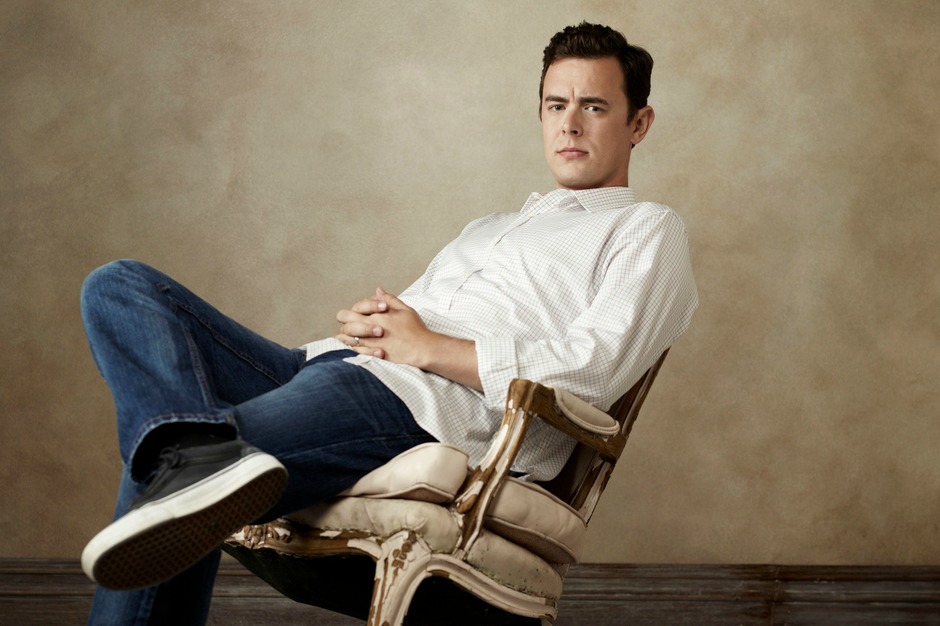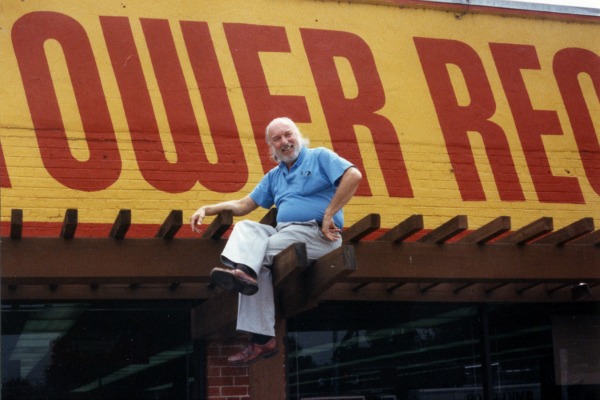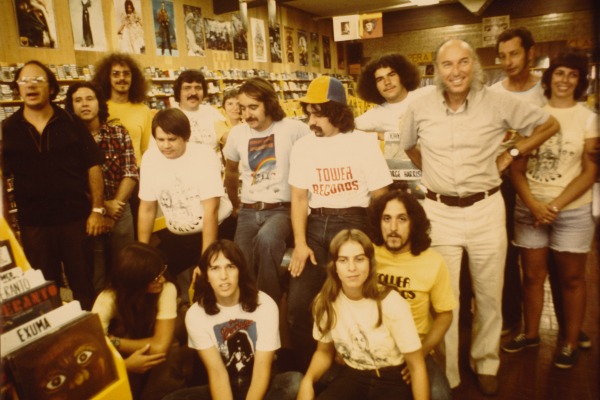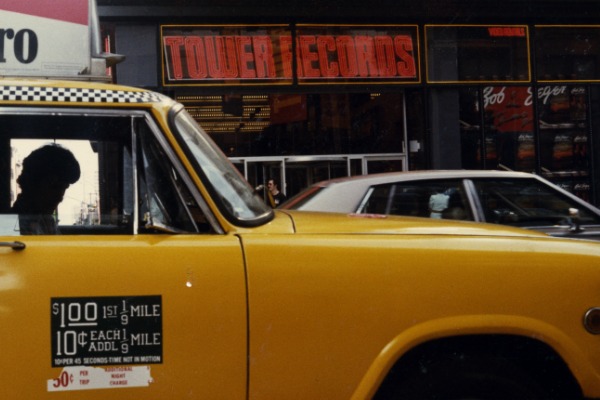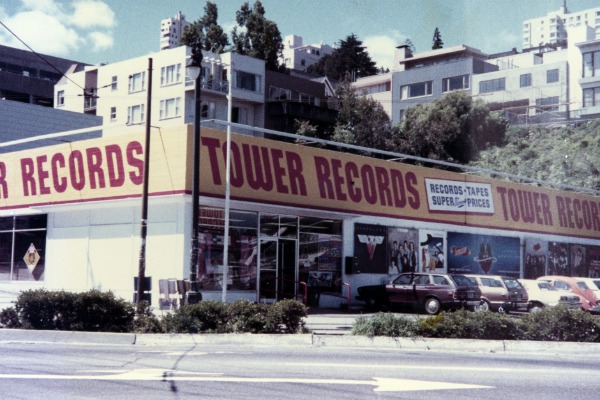The idea was simple: Buy a store, fill it with records, and hire your friends and family as employees. For more than 40 years, until its demise in 2006, this was the business model behind Tower Records’ global success.
Established in 1960 by then-owner Russ Solomon in the back of his father’s Sacramento drugstore, Tower eventually expanded to 190 stores across the U.S., plus dozens of international locations in Japan, Mexico, and Thailand. In 1999, when it was arguably at the zenith of its financial success, the music retailer saw nearly one billion dollars in revenue. But as actor and director Colin Hanks’ new Tower documentary suggests, all things must pass.
Featuring interviews from a flock of former Tower business associates, industry executives, and notable musicians like Dave Grohl, Bruce Springsteen, and Elton John, All Things Must Pass: The Rise and Fall of Tower Records (hitting theaters on October 16) chronicles the ascension and subsequent collapse of the music chain — as well as the many factors that contributed to its undoing.
Though many might assume that the rise of digital music consumption was the main accelerant, Tower’s business ultimately suffered from the overenthusiastic embrace of CDs and a series of poor business decisions that left the company wracked with debt.
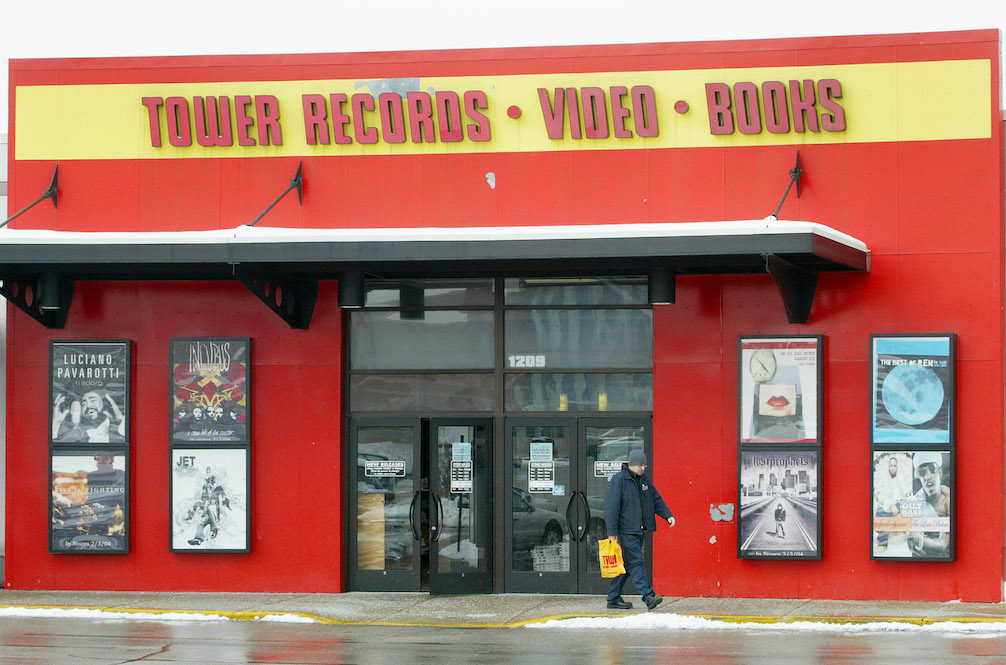
Also Read
Tower Records Returns as Online Store
Offering his take on the end of Tower, Hanks hopped on the phone with SPIN to talk about why he felt compelled to back this film, his personal connection to the now-defunct music chain, and why streaming is nothing to scoff at.
How personal of a project was this for you and why document it?
To be honest, I’ve been having a hard time coming up with that answer. For whatever reason, and I truly don’t know what it is, I was just compelled to tell this story. I knew deep down somewhere in my gut that there was a documentary here and a story here worth telling. It took me a while to properly convey that, and to properly understand what the story actually was. For whatever reason, my personal connection to Tower, I think, greatly informed that. I didn’t have much of a sweet tooth as a kid, so I spent all my money on music, and I spent a lot of time in record stores. I was definitely a part of that last generation of kids that grew up in record stores. I wasn’t sure if that was going to be a good decision or not, but I was just hell bent on doing it.
The film does a great job of reminding us of how we used to consume music. Was it important to highlight how we’ve distanced ourselves from that time period and perhaps the repercussions of not purchasing music through places like Tower?
For me it was really more about trying to pinpoint what Tower was. The way music is consumed now with streaming and all that stuff, I don’t know if it’s better or worse, I just know it’s different. And I’ve taken to both. I use streaming, I have my Rdio account that I love, but then I still go and buy records.
How did you demonstrate Tower’s social advantages in record shopping?
It’s interesting, the stuff we talk about in the film, this idea that Tower was this social place where you could go and meet other like-minded people and it didn’t matter what you looked like or what your interests were. That was what Tower Records was for me in the early ’90s. And record stores still are [social]. I do think that there is something very special in the fact that we can be talking about Tower Records in 1971 and I know exactly what it is that they’re talking about, even though I was even born until 1977.
One of those pillars that Tower had — deep inventory, deep catalogs, a knowledgeable staff — all of these things were what Tower hung its hat on for a great many years, and those are the things that separated Tower from, say, your other music retail stores, which, let’s all be honest, weren’t as good.
Why did you feel this was the right time to tell Tower’s story?
When we first started to make a movie — I realize now that we were going around in 2008 trying to secure financing when Tower was not far enough in the rearview mirror for people to really understand what was so special about it.
When we first started, Wal-Mart was the biggest music retailer, then it was the iTunes store, now it’s streaming. It’s changed so much even within the last seven years. I think now that there is that distance, people realize, “Oh, man, Tower really was a unique place. It really was a special store.” They were everywhere! The people in Boston felt the same way about their Tower as the same people in Los Angeles felt about theirs, and for them to be able to create that environment in over 192 stores around the world? That’s pretty impressive.
Do you feel a sense of loss regarding Tower, and if so, what do you think we’ve lost?
Yeah, I definitely feel that sense of loss. There’s a lot of things we were trying to do with the film. We wanted to put to bed this idea that it was simply Napster that killed Tower, because that’s not the case. It’s events going back as far as the invention and introduction of the CD that helped plant the seed for Tower’s ultimate demise. One of the things that I tried to focus on was that idea of loss, and personalizing it. People have a tendency to make music personal to them: “This is my favorite record. This is my favorite album. Tower Records in Sacramento was my Tower Records.”
How did Tower closing differ from another store chain declaring bankruptcy?
One of the things that I wanted to do was highlight just how much Tower was able to accomplish and the fact that this was a company that people spent 40 years of their lives working at. That’s a lifetime.
I wanted to highlight the personal loss that people felt when their Tower Records closed, I wanted to make it even more personal because I wanted them to understand that these are people who lost their jobs. It wasn’t just some place. This was a chapter of their lives ending.
I really wanted to put a human face on it so it’s not just, “Here’s some faceless brand, or some corporation, that went bankrupt.” This isn’t Radioshack. This is something special and something that was important to a great many people. But look, I also remember the loss of Tower Records itself. It was an amazing store that I loved very much. It’s missed.

